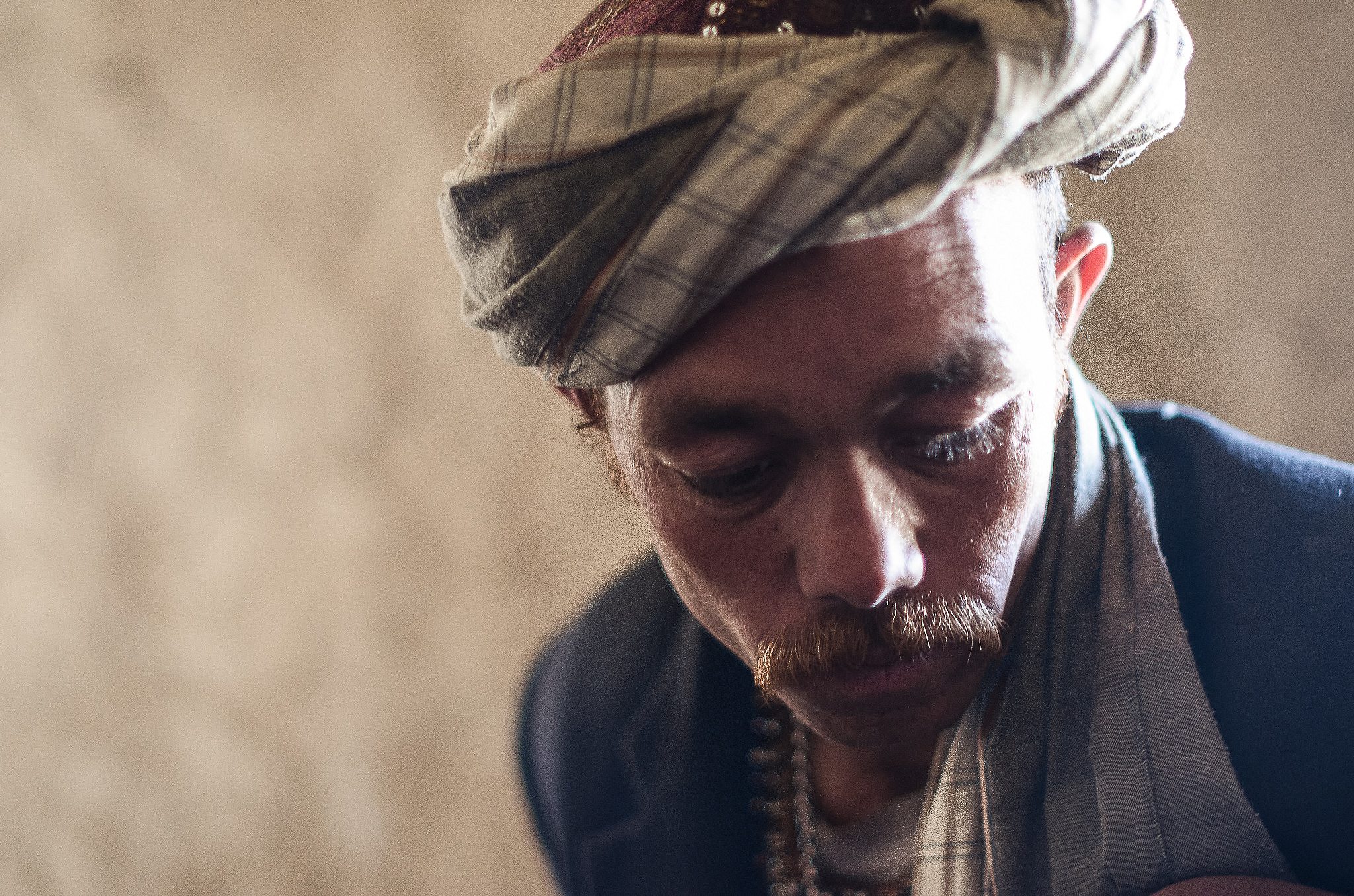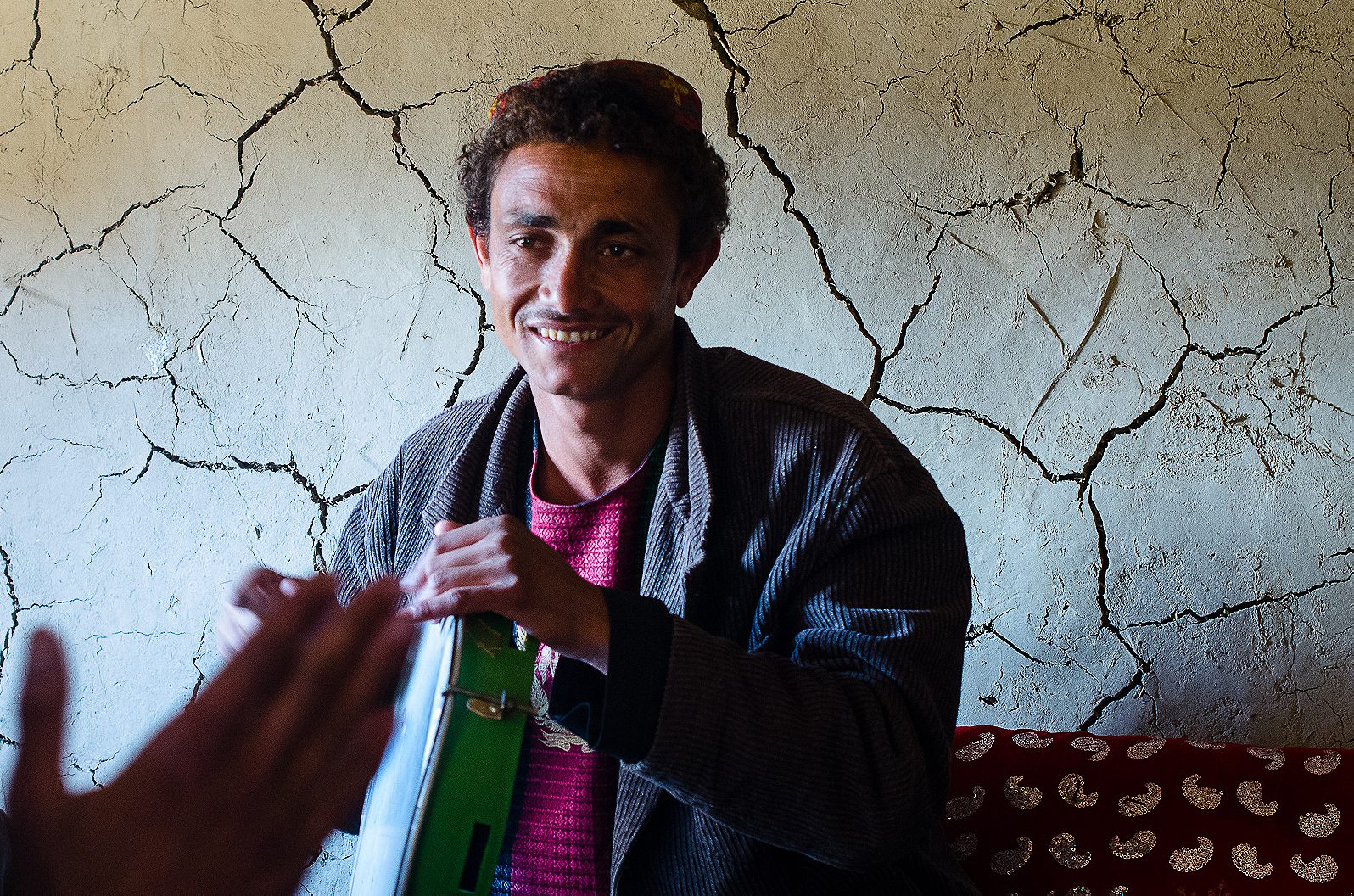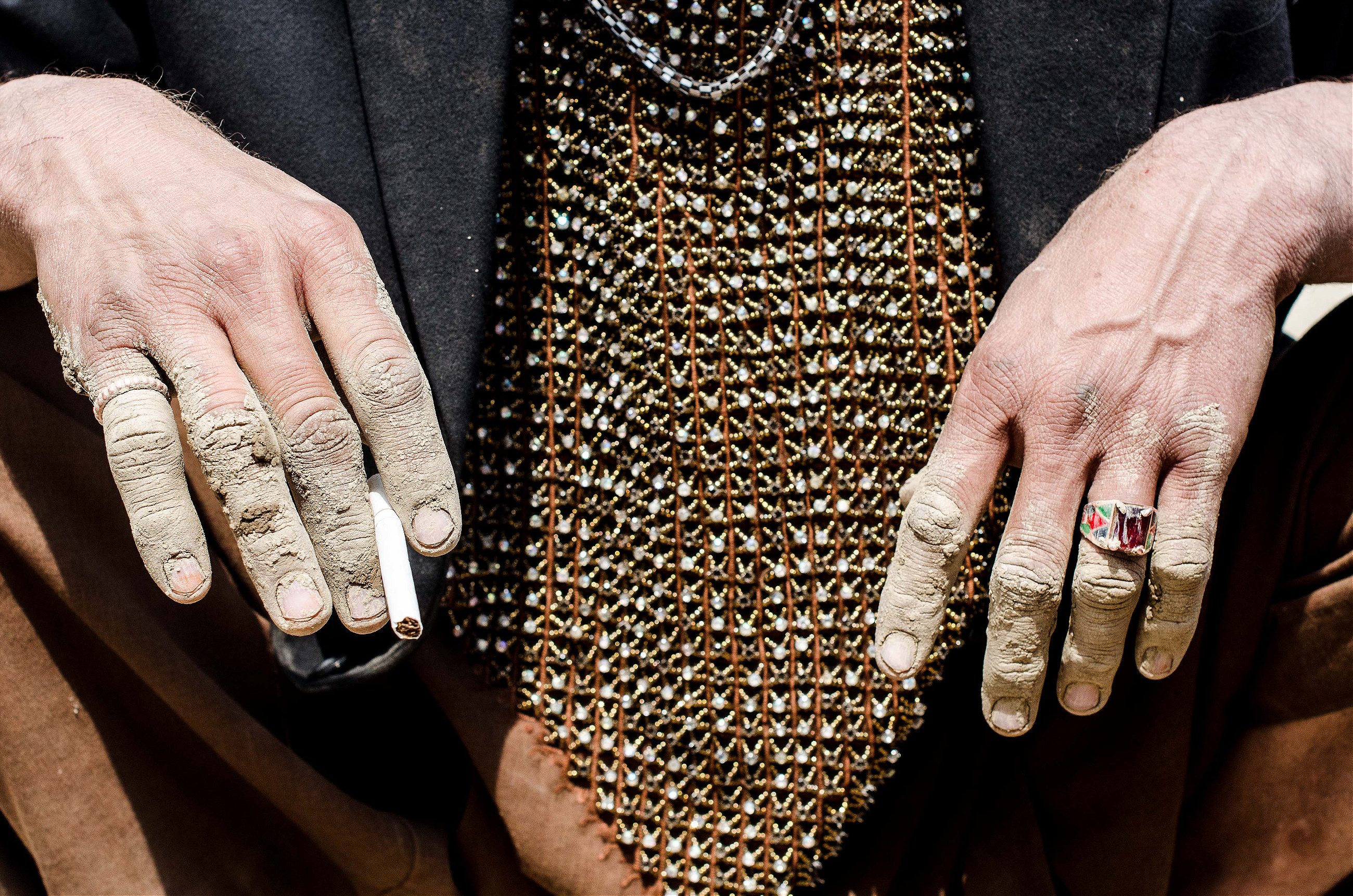At a camp for displaced persons in Afghanistan, one musician finds hope in traditional music.
In an empty mudbrick room, a family sits in a circle on the barren floor. A young man dressed in a traditional wedding outfit begins to tune the strings of a red instrument called a japoni. Another man lightly taps a tambourine. Soon the strumming and drumming turn into a song about love and Malalai, Afghanistan’s greatest heroine, akin to Joan of Arc, who lead a battalion of Afghan fighters to victory during a fierce battle against the British in 1880.
The man playing the japoni is Mohammad Iwaz, a red-headed 26-year-old musician. The wooden instrument is from his native Helmand province in southern Afghanistan, with strings and keys resembling those from a typewriter. “It refreshes my heart when I play it, and nothing else makes me happy except this,” Iwaz says.

Iwaz and his family are among the more than 630,000 internally displaced peoples (IDPs) spread across Afghanistan, according to the latest figures from the UNHCR. They have fled violence in their villages, which are mostly controlled by the Taliban. The problem escalated after American and other NATO troops left for other contested areas in the country.
Iwaz began learning to play the instrument when he was about 15 years old, and soon became a master. He and his musician friends made a living by playing at parties and weddings, despite warnings from the Taliban to stop performing. “They would come to us and kick us and beat us as if they are kicking a bucket,” Iwaz recalls. He said he once spent three months in a Taliban jail for playing the japoni.
Iwaz comes from Zamindawar, a small village in Sangin district, which has seen some of the heaviest and bloodiest fighting between the Taliban and U.S. and coalition forces. His village is rife with poppy, wheat, cornfields, and bombings.
“All my belongings were destroyed in bombings,” says Iwaz, adding that his village was struck some 20 times. “Houses were destroyed, our people were killed.”
After his home was destroyed two years ago, he moved his family to Lashkar Gah, capital of Helmand province, before finally moving to Kabul last spring. Equipped with just a few personal belongings—his japoni, two blankets, some kitchen items, and some clothes for himself and his wife and two sons – the family boarded a 12-hour bus journey to Kabul.

Now the family lives in a sprawling and dusty IDP camp in the western outskirts of the capital. The camp resembles a rural setting—a sprawling network of mudbrick homes without electricity, heat, or running water—separated by a maze of narrow dirt paths that can barely fit a motorbike. Most of the IDPs here are also from insurgency-hit Helmand province.
When Iwaz is not working as a day laborer at a neighboring IDP camp, he plays the japoni in his home. Like back in his village, he is well-known in the camp for playing the instrument and he often plays with the other camp residents, some of whom are his relatives.

On one afternoon in April, a mysterious man clad in a black leather jacket and black turban sits cross-legged inside Iwaz’s mud house. The man closes his eyes and he seems to enter a a trance. As Iwaz plays, the man waves his arms and sings traditional songs from his homeland. The man is a malang, the Afghan version of a shaman who believes he is dancing and praying to his god through the songs.
Iwaz hopes to build a new life in Kabul by playing the japoni, but he has found it difficult to earn a sustainable income for his family. Though his future in the camp remains uncertain, he does not want to move again. “Where would we go?” he wonders. “Since we have moved here, we can eat in peace. This place is peaceful, there is no war and fighting here.”